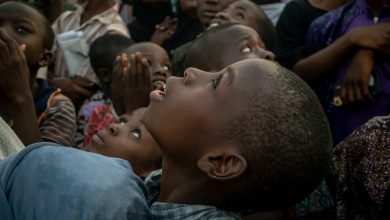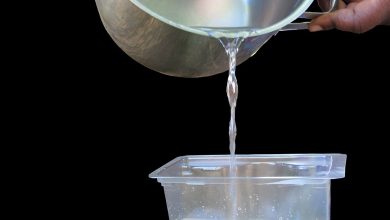When all other services took a backstage . . .
“I thought I was cheating on my parents, with online learning. The hard earned cash from my parents went to waste. I chatted hours on end with my lover and friends. Today, here I am,
“I cheated myself.”
A SNIPPET into the future; telling your grandchildren, would they believe that hospitals once closed doors to patients, with only serious cases attended to?
With a test of the ravaging infectious fever being a requirement for admission, some hospitals even refused to admit those afflicted by the fever because the doctors themselves too, didn’t know enough of the new disease.
They too, were scared and some healthcare workers resigned in a huff.
It was a pandemic, an infectious virus spreading through the air. A viral infection named Covid-19 had taken centre stage, with all other diseases relegated home.
It was a do, or die, situation.
Thank heavens, we are here to learn from the pandemic. What we did wrong or right?
Major lesson; our disaster preparedness as a country must go a notch higher in case another disaster strikes.
In that restrictive mode, many young girls prematurely ended school. The Covid-19 induced restrictions pushed, or rather, ushered in a new world order, which could either make or break someone, if not handled with maturity.
SCHOOLS CLOSED
With flying colours at Ordinary Level, in the November 2019 Zimsec Examinations, Chiedza enrolled for Advanced Level at Seke 1 High School in Chitungwiza.
She took commercial subjects as she dreamed of becoming an accountant. All that is now smoked, as she ponders her next step.
“I produced dismal Advanced Level results, with three failed grades.
“There is no sign that I completed A Level. I have now applied for nurse training at Chitungwiza Central Hospital. I wish I had done so before embarking on a wild goose chase,” lamented Chiedza, who requested I keep her surname undisclosed.
“We had only been in class for three weeks when the lockdown was announced. Schools closed end of March.
“The 30th of March saw the whole nation staying at home with only essential services reporting for duty. It was a new order. Second term was not to be, schools remained closed and in September.
“Our school introduced online learning. I was studying accounts, management of business and economics. In-depth online tutorials were no walk in the park.
“Adding insult to injury, I bunked the lessons and my presence online saw me watching movies, chatting with my lover or on WhatsApp chatting with my friends. The year 2020 was a wasted school year on my part.
“By February 2021, I requested that I get personal tutorials from the teachers. My parents obliged and paid through the nose, not to talk of the risk of defying lockdown restrictions.
“With a tutorial lasting an hour, so all in all, at most four hours, I was done with school. I claimed to spend the whole day at the teachers’ houses. I got home day end, after spending afternoons at my lover’s place. His parents live abroad, so the maid didn’t have an aorta of power to tell my lover what to do, or not to do,” said Chiedza.
Today, Chiedza is a mother of a year-old girl and she regrets everything.

“I need to go for nurse training. We rely on assistance from my husband’s parents. My husband sees nothing wrong and doesn’t support the idea of me going to nursing school. He suspects that I will one day leave him and seek greener pastures abroad.
“The quarrelling is getting onto my sanity. As a young mother, I can not live on handouts. He has threatened that if I get admitted into nursing school, I should leave his place.
“No lobola has been sent to my parents. My father doesn’t want to hear anything, he is adamant that I stay with my husband whom I chose ahead of school.
If only I could turn back the hands of time. Those moments of fun ruined my life,” said Chiedza.
If wishes were horses, Chiedza would have bolted out.
TWIN TRAGEDY
As if Chiedza’s case is not sad enough, teenage twins also fell by the wayside and today, have sad chapters to own or rewrite.
Leleti and her twin sister Thandeka both became house wives. They say none planned to be a wife at 18.
“Since Form 3, our dad relocated to the rural areas after retirement, leaving my twin sister and I to use four rooms and renting out five.
“Our mom is late. We both passed O Level and we were Lower 6 in 2020 when the world came to a standstill.
“Our dad was holed up in the rural areas and here we were, two teenagers, with cash from rentals, schools closed, we became more than independent. The rest is history, ….
“We fell pregnant and I had to go to my boyfriend’s house,” said Leleti.

Thandekile remained at home, having informed her boyfriend that she is pregnant, she decided to stay at home, with no guardian, no one would send her away, as is the custom.
She only left when one of the tenants noticed that she was pregnant, she was seven months gone then.
Speaking to journalists in Chitungwiza recently, the stern looking Thandekile has an aura of sadness which envelopes the listeners.
“Had I known, I would have gone immediately when I missed my menses. My mother-in-law put me in a ‘court’ asking, ‘where else had you gone? You think we are stupid that you come at seven months. I understand you stayed with your twin sister, your mom is late and your dad is in the rural areas’,” said Thandekile.
Thandekile said from Day 1, the reception was hostile, she had to remain calm.
Her boyfriend was unemployed, this was the reason she had delayed eloping.
“My boyfriend was unemployed, I could not have eloped to someone who was a dependent too. All along, I hoped he would find something to do, even to join the construction industry.”
Thandekile became stressed, living in a home she was not liked and at eight months went to register for ante natal clinic, (ANC).
“I went to Chitungwiza Central Hospital to register for ANC. I was told that they were seized with Covid-19 and accidents only, and that I should return to the hospital when labour kicked off.
At eight and half weeks, my baby stopped kicking. I told my husband who informed his mother,” said Thandekile, looking lost.
Mother in-law did not help, rather she scolded them both.
“Am I the hospital, go to the hospital, I am not a midwife.”
Thandekile had managed to get preparatory clothes for the baby. Together with husband, the two went to the hospital to meet yet an uninterested nurse.
“She demanded a Covid-19 certificate showing that I was Covid-19 negative, that I did not have. The test was expensive costing US$60,” Thandekile recalled.
“The nurse was very rude, not interested and when I told her that I could not feel my baby since last night, she told us to go back home. She said, ‘achatamba hake arara, aneta’ (baby will kick, now tired and asleep).
We went back home.
For a week I felt numb, one day, awful smelling pungent thick stuff oozed from my privates. I panicked and told hubby. He told mum and her reply was shocking,” said Thandekile.
“What do you expect from such a girl, don’t bother me, she should confess,” said the mother-in-law.
LOSS OF TWINS
The third visit to the same hospital offered no meaningful help. After being inspected, she was told her baby had died. They had to pay US$260.
They didn’t have that kind of money.
They left the hospital with Thandekile now pulling her feet due to cramps. On arriving home, husband went hunting for cash. They were informed that a private doctor could help at US$150.
“I phoned my father, he knew I had eloped. He instructed that we collect rentals and use that money. We went to see the private doctor who who noted that I had been carrying twins. One foetus had fully decomposed with the other one showing a minor burn, possibly from contamination from the decomposing one.
“I had lost my babies.
“That moment my purpose died. I also wanted to die. Home was no place to go back to.”
The doctor said:
“Had you got help on time, the girl could have been saved. She was alive for days. That is my story,
“Covid-19 shattered my world,” she added.
Today, Thandekile’s husband works for a beverage making company in Chitungwiza.
Life is supposed to be manageable, however, the opposite is true.
“My husband is now employed at a beverage manufacturing unit. He has given me up to August 2023 to have a child or I am out. I was pregnant again in March 2022, I had a miscarriage at 4 months.
“The doctor at Chitungwiza said my womb was not thoroughly cleaned. I still get cramps and unusual bleeding. I keep trying to fall pregnant but to no avail.
“Someone who sells medical supplements said I need to take fertility pills. One costs US$55. I require four.
“My mother-in-law said anyone in need of assistance to get a child is cursed. It’s a punishment for sins carried in the dark. She blamed me since day 1, she blames me today saying that I carry my sins. She insists that I must confess. Confess to what?
“I never had any self-induced abortion before. My husband found me a virgin. I just pray that I get to have the much needed child before the deadline. Maybe my husband will love me again?
“Maybe my mother-in-law will tolerate and respect me?
“Dear God, help me,” said Thandekile.
Thandekile is one of the thousands of women who get challenges after lack of comprehensive treatment, care and support after a still birth.
MEDICAL
Dr Joyce Chihota, a gynaecologist said hospitals are obligated to remove the dead foetus from a woman as quickly as possible,” said Dr Chihota.
“The foetus should be removed at most within three days from when the loss was discovered.
The most commonly identified causes include uterine problems, hormonal disorders, genetic abnormalities, hypertension, diabetes and substance misuse,” said Dr Chihota.
“A stillbirth is the death of a foetus in the uterus after week 20 of pregnancy. The reasons go unexplained for one in three cases. The rest may be caused by problems with the placenta or umbilical cord, high blood pressure, infections, birth defects, or lifestyle choices for those who take alcohol, smoke or take harmful substances,” said Dr Chihota.
“For the case you are referring to, it could be due to hypertension or chromosomal defects. Both husband and wife require to go for assessment. Recurrent loss of a foetus is devastating. Any miscarriage is difficult, but a late miscarriage after week 13 of pregnancy can be even more devastating, both emotionally and physically,” Dr Chihota advised.
“Recurrent miscarriage, which is known as consecutive miscarriages, affects about 1% of couples.
It is for this factor that the couple must report at a hospital near them,” said Dr Chihota.
UNICEF reports that women and their partners who experience stillbirth have higher rates of depression, anxiety and other psychological symptoms that may be long lasting.
“For many women, losing their child and the subsequent care they receive will impact their approach to life and death, self-esteem and even their own identity,” states UNICEF under maternal health care.
DISASTER PREPAREDNESS
As a country, our disaster preparedness was found lacking as Covid-19 took centre stage. All eyes focused on the pandemic with little or no attention to other conditions and diseases.
Learners stayed at home with the haves taking online lessons, the have nots left behind.
Hospitals focused on Covid-19 with even maternity restrictions causing harm as seen in Thandekile’s case.
With no access to contraceptives, the number of unplanned pregnancies remain unknown, but massive.
In the third and last instalment, we look at undisclosed bereavement and bleeding hearts.




